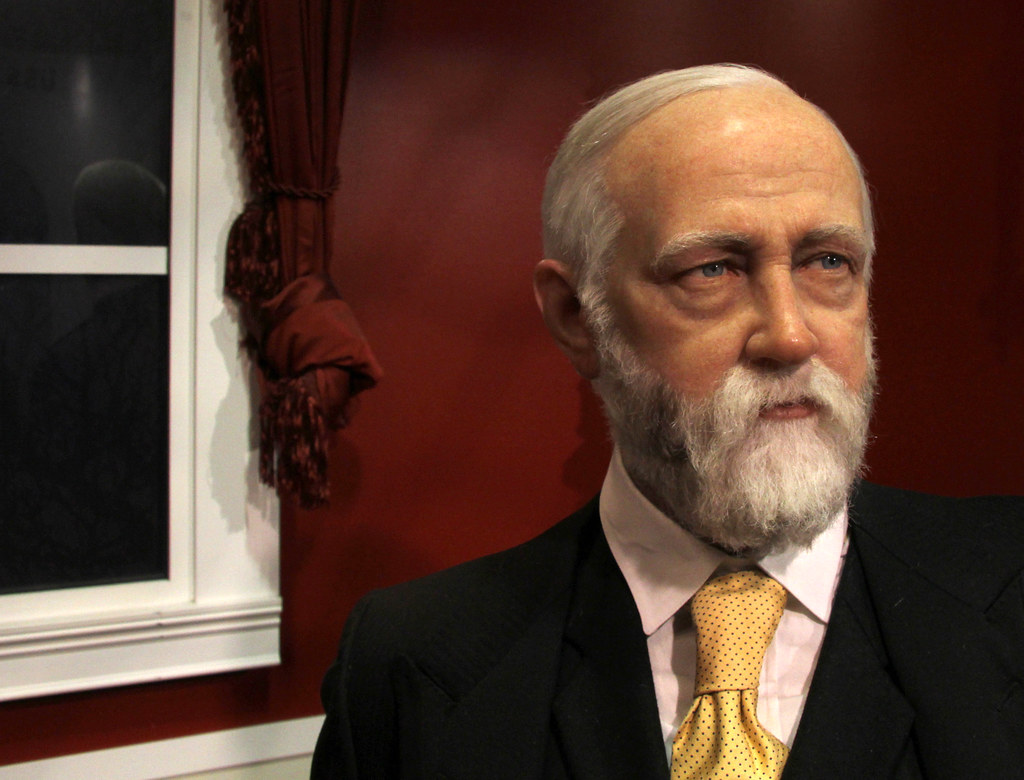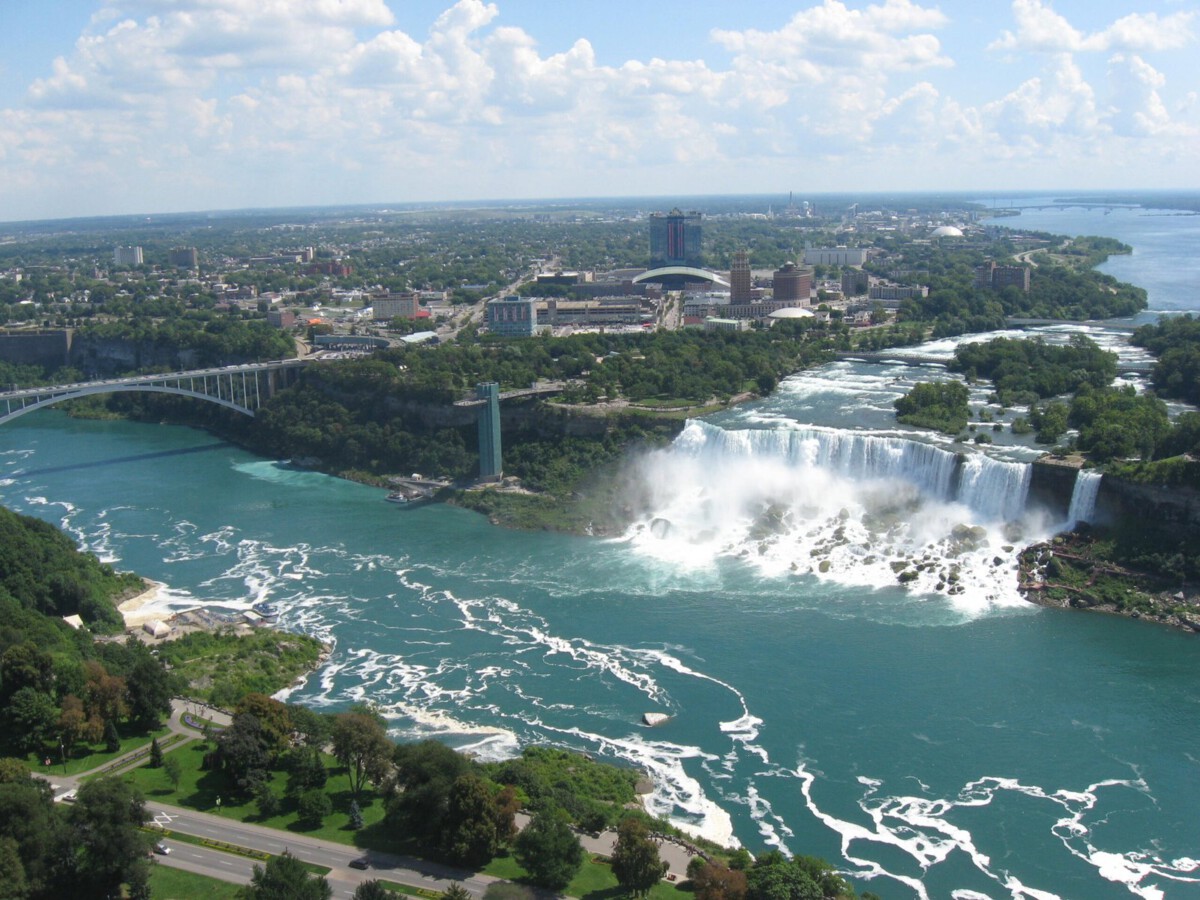Ulysses S. Grant: From Civil War Hero to Misunderstood Executive

Most people remember Ulysses S. Grant as the guy who won the Civil War, but his presidency? That’s where things get murky. For decades, historians ranked him near the bottom of presidential lists, calling his administration corrupt and ineffective. But here’s the twist that might surprise you: Grant has gradually climbed the rankings from #28 in the first survey in 2015, to #21 in 2018 and now #17 in 2024. The rankings on his presidency have improved markedly in the 21st century from a place in the lowest quartile to a position in the middle. What changed? Modern scholars started looking past the scandals to see what Grant actually accomplished. At a time when the nation was still recovering from the trauma of civil war, he worked to knit together the frayed Union, lift up formerly enslaved people and advocate a humane, if not enlightened, policy regarding Native Americans. Overall, Grant’s intentions were honorable, and he made efforts that few had attempted before him, especially in the areas of African American rights, Native American policy, and civil service reform. He also executed a successful foreign policy and was responsible for improving Anglo-American relations. The man who seemed like a political disaster might actually have been ahead of his time.
Harry S. Truman: The Underestimated Everyman

Picture this: a failed haberdasher from Missouri becomes president and saves the world. That’s essentially Harry Truman’s story, though it took historians decades to figure it out. Though unpopular when he left office, he has grown more highly regarded by historians over the years. The guy who dropped atomic bombs, started NATO, and contained communism was actually deeply unpopular during his presidency. Jimmy Carter averaged 45.5% job approval as president, essentially tied with Harry Truman as the second-lowest among post-World War II presidents. But here’s what makes Truman fascinating: he made massive decisions that shaped the modern world without really caring about his approval ratings. As experts on the presidency gain more perspective, their rankings of some presidents, such as John Kennedy, have fallen, while their impressions of others, such as Harry Truman, have risen. After V-E Day, when Japan refused to surrender, he ordered that atomic bombs be dropped on Hiroshima and Nagasaki, finally ending World War II in the Pacific. Shortly thereafter, Truman watched the signing of the charter of the United Nations, established to preserve peace.
John Quincy Adams: The Intellectual Giant Nobody Appreciated

John Quincy Adams might be the smartest president we ever had, but good luck finding anyone who remembers him fondly. Most folks just know him as the guy who “stole” the presidency from Andrew Jackson in 1824. He is basically only remembered as being the guy that swindled the presidency from Andrew Jackson, but in reality, he was one of the best presidents of the 19th century. But dig deeper and you’ll find something remarkable: this was a president who spoke seven languages, swam naked in the Potomac River every morning, and had a vision for America that was about 50 years ahead of its time. Adams, the first son of a former president to become president himself, was known for his moral authority. His served during a time of great division in the country and faced a contentious Congress, but fought hard for civil liberties and the unification of the country. Think about it: while other politicians were pandering to popular opinion, Adams was pushing for federal funding of roads, canals, and even astronomical observatories. For example, the presidencies of James Madison, John Adams, and John Quincy Adams are no longer as highly regarded as they used to be. The problem wasn’t his ideas—it was that America wasn’t ready for them yet.
Jimmy Carter: The Humanitarian Who History Forgot

Jimmy Carter gets a bad rap, and honestly, it’s not entirely unfair. His presidency was rough, no doubt about it. But here’s something that might blow your mind: Carter was considered the most underrated commander-in-chief, while John F. Kennedy was voted the most overrated. The peanut farmer from Georgia who couldn’t handle the Iran hostage crisis actually accomplished some pretty impressive stuff. Some historians have expressed admiration for Carter’s pursuit of equal justice, but he struggled with crises during his presidency. He is credited with creating a national energy policy to deal with oil shortages, and for bringing Israel and Egypt together for the Camp David accords. But his administration struggled with economic stagnation and experienced setbacks such as the Iran hostage crisis. The Camp David Accords alone—getting Egypt and Israel to make peace—should’ve been enough to secure his legacy. Plus, the guy was way ahead of his time on environmental issues and human rights. While he made several mistakes, he was a great humanitarian, and should be revered as such. Maybe we judged him too harshly because he was too decent for the dirty game of politics.
James K. Polk: The Promise-Keeper Who Delivered Big

James Polk might be the most goal-oriented president in American history, and that’s not hyperbole. This guy made four specific campaign promises and then actually kept all of them—imagine that in today’s politics! Polk ranks highly for his vision and agenda-setting abilities. Under Polk’s leadership, the U.S. acquired more than 800,000 square miles of western land, extending its boundary to the Pacific Ocean. After his four-year term, he did not seek another one. He promised to expand the territory to the Pacific, establish an independent treasury, reduce tariffs, and serve only one term. Check, check, check, and check. In this survey, Ronald Reagan joins the group of “Near Great” presidents with Thomas Jefferson, Teddy Roosevelt, Andrew Jackson, Harry Truman, Dwight Eisenhower, James Polk, and Woodrow Wilson. The Mexican-American War was controversial, sure, but Polk literally doubled the size of the United States. California, Nevada, Utah, most of Arizona and New Mexico—that’s all Polk’s doing. The man worked himself to death (literally—he died three months after leaving office) to fulfill his campaign promises.
Chester A. Arthur: The Accidental Reformer

Chester Arthur became president because someone shot James Garfield, and everyone expected him to be a disaster. Arthur was a product of the corrupt political machine system, basically a guy who got jobs for his friends in exchange for political favors. But then something weird happened: he became president and decided to actually do the right thing. Among some historians, Arthur gets low ratings for his failure to ensure equal justice for all. His administration enacted the first immigration law, which excluded Chinese people as well as “paupers, criminals and lunatics.” Despite this problematic legacy on immigration, Arthur completely reformed the civil service system, essentially destroying the corrupt system that had made him powerful in the first place. Imagine a modern politician dismantling the very system that got them elected—that’s exactly what Arthur did. He signed the Pendleton Civil Service Act, which meant government jobs would go to qualified people instead of political cronies. The minimum number of responses (62) were for the rather obscure and inconsequential presidents Hayes, Arthur, Cleveland, and Benjamin Harrison. Unfortunately, being forgotten by history seems to be Arthur’s fate, even though he proved that people can actually change for the better.
William Howard Taft: The Reluctant President Who Excelled Elsewhere

William Howard Taft didn’t really want to be president—he wanted to be on the Supreme Court. And you know what? He was probably right about his own strengths. Historians believe that Taft had a lot of presidential integrity. Taft favored the law over politics and went on to serve as Chief Justice of the United States after his term in the White House. Taft is the only person in American history to serve as both president and Chief Justice of the Supreme Court, which is pretty remarkable when you think about it. One respondent explicitly rejected this tendency, “Some of the low-ranking presidents [as he ranked them], such as John Quincy Adams, Martin Van Buren, and William Howard Taft, were able men who contributed a great deal to the nation, but not as president.” As president, he actually busted more trusts in four years than Teddy Roosevelt did in seven, but Roosevelt gets all the credit. A supporter of free immigration, Taft vetoed a bill passed by Congress and supported by labor unions that would have restricted unskilled laborers by imposing a literacy test. The man was principled, intelligent, and probably more effective than history gives him credit for—he just had the misfortune of following the incredibly charismatic Theodore Roosevelt.
Grover Cleveland: The Only President to Pull a Comeback

Grover Cleveland is literally the only president to serve non-consecutive terms—he was the 22nd and 24th president, which is pretty unique. But here’s what makes him really interesting: the guy was absolutely obsessed with doing what he thought was right, even when it was politically stupid. Cleveland vetoed a bill that would have given government money to veterans, drought-stricken farmers and people with disabilities, and he sent in federal troops to break a railroad workers’ strike. He is the only president to leave the White House and later return for a second term. Cleveland vetoed more bills than any president before him, earning the nickname “the veto president.” Grover Cleveland’s last words were, “I have tried so hard to do right.” But respecting the Constitution’s limitations on legitimate federal activities, he didn’t find “government” to be every answer, regardless of the question. He once reflected, “I am honest and sincere in my desire to do well, but the question is whether I know enough to accomplish what I desire,” and had the honesty to answer in the negative. He believed in small government before it was cool, fought corruption even when it hurt his own party, and stood up to special interests. The problem was that his rigid principles sometimes made him seem heartless to regular people who were struggling.
Benjamin Harrison: The Policy Wonk Nobody Remembers

Benjamin Harrison might be the most forgettable president in American history, which is unfortunate because he actually accomplished quite a bit. Historians have faulted Harrison for poor communication skills and lackluster leadership ability. Harrison also tried to fix a high tariff problem, but prices rose and prosperity suffered. The grandson of William Henry Harrison (who died after 30 days in office), Benjamin had to live with constant comparisons to his famous grandfather. But here’s what he actually did: he signed the Sherman Antitrust Act, which was the first major attempt to regulate big business monopolies. The minimum number of responses (62) were for the rather obscure and inconsequential presidents Hayes, Arthur, Cleveland, and Benjamin Harrison. He also oversaw the admission of six new states to the Union and established forest reserves that became the foundation of our national park system. Harrison was a policy nerd who got stuff done, but he had the personality of a wet towel and couldn’t connect with regular people. Harrison’s presidency was marked by organizational chaos. At the time, it was common for job seekers to simply show up at the White House and ask for a meeting with the chief executive — and they did. In one letter, Harrison complained, “I am so much harassed by the multitude that calls upon me that I can give no proper attention to any business of my own.” Sometimes being boring is actually a qualification for good governance.
Rutherford B. Hayes: The Compromise President Who Chose Integrity

Rutherford Hayes became president through one of the most controversial elections in American history—the election of 1876 was basically decided by a backroom deal that ended Reconstruction. But once he got in office, Hayes did something that shocked everyone: he actually tried to govern with integrity. Historians have criticized Hayes’ record on equal justice as he oversaw the end of Reconstruction. Hayes pledged to protect the rights of African Americans in the South but then withdrew federal troops, preferring what he hoped would be “wise, honest and peaceful local self-government.” Instead, Southern states swiftly imposed Jim Crow laws. This was his biggest failure, and it’s a big one—ending Reconstruction basically abandoned African Americans in the South for the next 80 years. But Hayes also did some genuinely good things that get overlooked. He reformed the civil service, tried to protect Chinese immigrants when it was incredibly unpopular to do so, and restored dignity to the presidency after the corruption of the Grant administration. The minimum number of responses (62) were for the rather obscure and inconsequential presidents Hayes, Arthur, Cleveland, and Benjamin Harrison. The tragedy of Hayes is that his one term wasn’t long enough to accomplish his reform agenda, and history remembers him mainly for the controversial way he became president and his failure on civil rights.
Martin Van Buren: The Political Mastermind Behind the Scenes

Martin Van Buren might be the most skilled politician to ever serve as president, which sounds like a contradiction but hear me out. This guy basically invented the modern American political system—he created the Democratic Party as we know it and established the idea that political parties could be a good thing rather than dangerous factions. Van Buren served during the Panic of 1837, one of the worst economic depressions in American history up to that point, which completely destroyed his presidency. But before becoming president, Van Buren was the political mastermind behind Andrew Jackson’s success. He understood that democracy required organized political parties to function properly, and he built the machine that dominated American politics for decades. The problem was that when he finally got his turn to be president, the economy collapsed and there wasn’t much he could do about it with the limited tools available to the federal government in 1837. Van Buren was probably better suited to be a behind-the-scenes operator than the guy in charge, but his contributions to American democracy are much bigger than most people realize. Think of him as the Steve Jobs of 19th-century politics—a visionary who understood how to build systems that would outlast him.
Calvin Coolidge: The Silent President Who Let America Roar

Calvin Coolidge was known as “Silent Cal” because he barely talked, but maybe that was exactly what America needed in the 1920s. Coolidge is rated poorly for crisis leadership, lack of imagination and failing to work for equal justice for all Americans. He refused to use the country’s economic boom to help struggling farmers and workers in other flailing industries. His philosophy was basically “the business of America is business,” and he believed the best thing government could do was get out of the way. During his presidency, America experienced unprecedented economic growth—the Roaring Twenties happened on his watch. Underrated: Calvin Coolidge, Grant, John Quincy Adams, Carter. The stock market soared, new technologies like radio and automobiles transformed daily life, and American culture exploded onto the world stage. Critics say Coolidge’s hands-off approach contributed to the conditions that caused the Great Depression, and they might be right. But here’s the thing: Coolidge understood that sometimes the best leadership is knowing when not to lead. He restored trust in government after the corruption scandals of the Harding administration, and he showed that you don’t need to be a showboat to be effective. In an era of constant political noise, maybe we could use a little more Silent Cal energy.
The rankings might surprise you, but these forgotten leaders shaped America in ways that echo through today. The rankings on his presidency have improved markedly in the 21st century from a place in the lowest quartile to a position in the middle. In a 2021 C-SPAN survey ranking presidents from worst to best, Grant was ranked 20 out of 44 presidents, up from his previous ranking of 33 in 2017. This was due to the rehabilitation of his image and legacy in recent years, with Grant now receiving “more credit for Reconstruction and his diplomacy than condemnation for his alleged corruption.” History has a funny way of evening the score—sometimes the presidents we ignore turn out to be the ones who mattered most.







